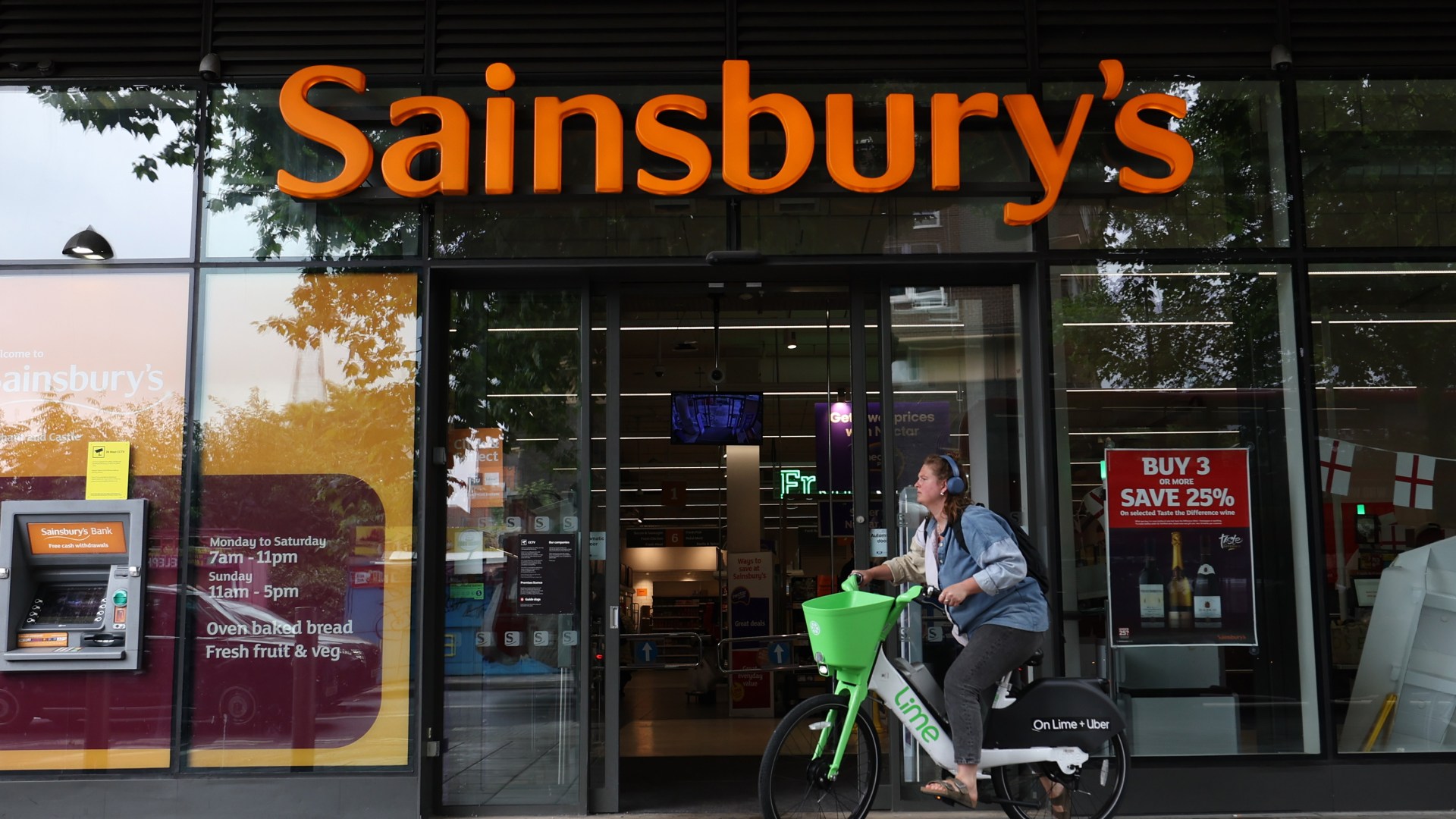Money
The Morning Briefing: Finding the perfect-fit tech; Intelliflo and Estgro team up


Good morning and welcome to your Morning Briefing for Thursday 7 November 2024. To get this in your inbox every morning click here.
Finding the perfect-fit tech for your firm
As important as tech is, advisers often tell me how they don’t know where to start when it comes to picking a solution, writes Richard Harrison, chief executive of Sesame Bankhall Group.
The sheer number of options out there can be overwhelming and tech providers sometimes speak what can sound like a different language to the uninitiated.
While every firm has its own unique needs, there are basic principles that can help you navigate the noise and choose the right tools. Here’s how to simplify the process.
Intelliflo and Estgro team up to transform wealth planning
Fintech provider Intelliflo has teamed up with estate planning firm Estgro to transform how advisers handle generational wealth planning.
The partnership will bridge the gap between financial and legal services, making estate planning and inheritance processes easier for both advisers and their clients.
This combination allows financial advisers to provide tailored recommendations for wealth transfer and inheritance tax strategies.
Close Brothers and SEI sign platform tech deal
Close Brothers Asset Management (CBAM) and SEI have agreed a platform technology partnership.
The deal includes the adoption of SEI Wealth Platform and SEI Data Cloud, a fully integrated technology, data and operational outsourcing solution.
CBAM said the partnership marks a move to deliver its strategic objectives and to be the best place in the UK for wealth management professionals and their clients.
Quote Of The Day
Ironically, Trump’s supporters, who have blamed inflation for making them poorer under the Biden administration, might face further economic challenges.
–Lindsay James, investment strategist at Quilter Investors, comments on the results of the US election.
Stat Attack
Research by Canada Life has revealed a surprising lack of discussions around inheritance planning in the UK.
It shows:
49%
Less than half of the population have discussed their end-of-life wishes with their loved ones.
44%
Across the UK, more than two fifths have not written a will, nor are they currently in the process of doing so.
26%
When asked why they do not have a will in place, over a quarter said they do not have enough assets or wealth to warrant making one.
20%
believe they still have plenty of time to make one.
15%
do not want to pay to write a will.
14%
believe their loved ones will inherit their assets automatically.
Source: Canada Life
In Other News
Advanta Solutions Ltd has acquired City Financial Planning Limited, adding a further £800m of AUM under its stewardship.
The purchase of City Financial Planning, which has offices in both Bath and Exeter, is Advanta’s second acquisition in 2024 and its ninth in total.
City Financial Planning director Tim Quirke said: “Becoming part of the Advanta family enables us to continue to grow the business that has its origins almost 25 years ago when the current directors joined forces to create City Financial Planning.
“We have built up a base of fantastic clients, many of whom have become personal friends, making it essential for us to find the right company to partner with. We believe that Advanta is the right company for our clients and our staff.
“Knowing that Advanta shares the same values, professionalism and client service standards that we believe in, was a fundamental key to our decision.”
Craig Webster, CEO of Advanta, added: “We are delighted that City Financial Planning have decided to become part of the Advanta team and that the directors, advisers, their clients, and staff are joining us.
“City Financial Planning have built a fantastic reputation with their clients, and we look forward to working with them on the next phase of their journey.”
Advanta was assisted by Dow Schofield Watts and DLA Piper.
City analysts overwhelmingly predict Bank of England interest rate cut (Guardian)
Risk assets rally but bond market views Trump’s victory with caution (Financial Times)
Asia FX traders brace for risk of disappointment by Fed, China (Bloomberg)
Did You See?
Adviser Services Holdings (ASHL) has sold its national advice business – LYNC Wealth Management – to an affiliate of Seven Investment Management (7IM).
ASHL operates both an independent and restricted advice network, Sense and Lyncombe, with a combined £9bn of assets under advice and over 450 advisers.
In 2023, ASHL began acquiring financial advice firms under the LYNC Wealth Management umbrella, with the aim of offering an exit for advisers wishing to sell their business.
LYNC has bought seven nationwide firms that collectively manage £500m of assets under advice, with plans to acquire several more firms in the coming months.
LYNC will become an appointed representative of the ASHL-owned Lyncombe network.
Money
Newcore Capital completes £50m of primary healthcare acquisitions

Of the 15 assets acquired, 12 were purchased from a major UK REIT in a £25m portfolio transaction.
The post Newcore Capital completes £50m of primary healthcare acquisitions appeared first on Property Week.
Money
Bank of England Cuts Interest Rates to 4.75% to Stimulate Slowing Economy – Finance Monthly

The Bank of England (BoE) has announced a cut to its benchmark interest rate, lowering it from 5% to 4.75% – the Monetary Policy Committee vote was – 8:1. This is the second consecutive rate cut in recent months, aimed at boosting economic activity and addressing a softening inflation landscape. The decision, closely watched by markets, businesses, and consumers, reflects the central bank’s focus on supporting economic stability during uncertain times.
Why the Bank of England Cut Rates to 4.75%
The BoE’s decision comes on the heels of new economic data showing a significant cooling of inflation. In September, the UK’s annual inflation rate fell to 1.7%, marking the lowest level in over three years and well below the government’s 2% target. The unexpected drop in inflation, combined with slowing wage growth, provided the Monetary Policy Committee (MPC) with the justification needed to reduce rates once again.
What the Interest Rate Cut Means for Borrowers
Lowering the base interest rate has immediate implications for borrowers. Homeowners with variable-rate or tracker mortgages are expected to see reductions in their monthly payments, providing some relief as the cost of living continues to challenge many families. While fixed-rate mortgage holders may not experience immediate benefits, new deals could gradually become more competitive as lenders adjust to the BoE’s move.
High Street banks and other lenders are likely to lower rates on personal loans, credit cards, and other borrowing products, making access to credit more affordable. For individuals and businesses, this could stimulate spending and investment, boosting economic activity.
Related:UK Housing Market Sees Homes Selling Quicker in October 2024
Impact on Savers: Reduced Returns Expected
Unfortunately, the news isn’t as positive for savers. Interest rate cuts typically lead to lower returns on savings accounts, ISAs, and other interest-bearing accounts. The current average rate for an easy-access savings account, around 3%, may soon see reductions as banks adjust to the new base rate.
To mitigate the impact of reduced rates, savers may need to explore alternative options such as fixed-term accounts, bonds, or investing in diversified portfolios.
Related:Share Tips 2024: Finance Monthly’s Leading Selections for This Week
Future Outlook for Interest Rates
While today’s rate cut to 4.75% demonstrates the BoE’s commitment to stimulating growth, uncertainty about future interest rate movements remains – particularly as there is likely to be increased economic demand given the recent budget. Key factors such as inflation trends, wage growth, and global economic conditions will play pivotal roles in shaping the BoE’s next steps. The central bank’s goal is clear: to provide a supportive economic environment without allowing inflation to spiral out of control.
Practical Steps for Borrowers and Savers
For borrowers, this rate cut presents an opportunity to reassess their financial options. Those with variable-rate mortgages should see immediate relief, while others may want to consider refinancing or exploring new deals. On the other hand, savers will need to evaluate their portfolios and consider strategies to maximize returns in a low-interest-rate environment.
Money
How to advise on windfall investment gains

 October saw the UK host a major investment summit aimed at attracting more money into the many investment opportunities our country offers.
October saw the UK host a major investment summit aimed at attracting more money into the many investment opportunities our country offers.
But it wasn’t just prime minister Keir Starmer and chancellor Rachel Reeves making the case for inward investment; we also had the hugely successful American businessman and politician Michael Bloomberg “convinced the future’s bright for Britain”.
Now, when our clients invest, they expect a regular income from their asset in the form of interest and/or dividend payments. Those investing for the long term can move away from the safety of bank deposits into bonds and equities from which we can hope for capital gains too.
Many moderate risk investments will deliver these gains over time, even though their month-by-month asset value growth progression may deliver a saw-toothed graph rather than a smooth incline.
However, occasionally, some of your clients’ investment portfolios may enjoy a windfall gain.
With a defined contribution pension, such as a SSAS or Sipp, the gain is all theirs
Perhaps a pharma company has completed clinical trials on a new drug and found it helps with some cancers and is free of unwanted side effects. Great news for society and a windfall investment gain for those that put money into the company to enable it to research and develop new treatments.
If it was some of your clients’ pension assets that enjoyed this windfall gain, then what happens to the money depends very much on what sort of pension they have.
With a defined contribution (DC) pension, such as a SSAS or Sipp, the gain is all theirs. It will show up immediately in their pension pot if you have advised them to invest directly in the shares. Or it will show up the very next day if they invested via a fund with daily pricing.
If they are age 55 or older, they might choose to take that windfall amount out straight away, less tax, and celebrate by buying the thing they’ve always wanted that’s always been just out of reach.
CDCs give each member an immediate increase to their annual pension amount where schemes benefit from a windfall
However, with a defined benefit (DB) or final salary pension, it’s pretty much the opposite.
DB pensions are ‘balance of cost’ schemes, in which the employer contributes whatever it costs to provide the promised pension. A windfall investment gain typically means the employer can reduce pension contributions, while the members’ benefits remain unchanged.
Today, it may simply accelerate the progress towards scheme buy out with an insurance company – whereupon those benefits become fixed in stone.
With a collective DC (CDC) scheme (there is now one single employer scheme live in the UK – Royal Mail – and a lot more coming as the government unfurls the legislation for multi-employer CDC) it’s a lot more complicated.
Two-thirds of retirees today are living as couples and, for many of them, the gender pensions gap is all too real
CDCs give each member an immediate increase to their annual pension amount where schemes benefit from a windfall. This will be of most value to those on the cusp of retirement, who are about to receive it and have many years of retirement income ahead of them.
However, it will be of much less value to the very old with not long left to draw on their CDC pension, or to young members with decades to go before they draw a pension.
Let’s return to DC schemes for a concluding thought, as that’s where most of your clients are saving for retirement today.
When your clients tot up any windfall investment gain and cry out “it’s all mine!”, do remind them of their obligation to support their spouse or partner’s retirement income as well.
After all, two-thirds of retirees today are living as couples and, for many of them, the gender pensions gap is all too real.
Adrian Boulding is director of retirement strategy at Dunstan Thomas
Money
Major supermarket slashes price of 1L Baileys to just £8.50 in ‘astonishing’ deal ahead of Christmas

A SUPERMARKET giant has slashed the price of a litre of Baileys to just £8.50.
Fans of the Irish cream liqueur will be delighted that the cost has been cut ahead of the festive season.
Morrisons shoppers will be able to get their hands on the discounted drink when they spend £45 or more in store.
But they will need to act quickly as the deal is only on from November 8 to November 14.
Customers in England and Wales will be able to get their hands on the beverage for £8.50 while those in Scotland can pick up a bottle for £11.05.
This is a 61% saving on the usual £22 price tag.
Read more on supermarkets
Britain’s coupon kid Jordan Cox said every year there is a Baileys price war among supermarkets which usually happens around November.
He said: “The standard price drop is usually down to £10 for a 1L bottle… or £9.50 if we’re lucky. So for Morrisons to drop the price to £8.50 is quite astonishing!”
The Morrisons deal is especially good as supermarket prices have been naturally increasing over the years, he added.
Just this week Sainsbury’s halved the cost of a 1 litre bottle to only £10.
The deal is only available to those with a Nectar Card as part of its Nectar Prices.
Meanwhile, Tesco Clubcard customers can pick up a bottle of Baileys for £13.
The offer is valid for delivery from now until December 9.
Supermarkets have increasingly only offered these deals to shoppers who have registered for their loyalty programmes to encourage more people to register.
Shoppers have complained that this is annoying as they could previously get the offers without needing to sign up.
The Morrisons deal is also only available to shoppers who have joined the supermarket’s loyalty scheme and have a More Card.
How to save on your supermarket shop
THERE are plenty of ways to save on your grocery shop.
You can look out for yellow or red stickers on products, which show when they’ve been reduced.
If the food is fresh, you’ll have to eat it quickly or freeze it for another time.
Making a list should also save you money, as you’ll be less likely to make any rash purchases when you get to the supermarket.
Going own brand can be one easy way to save hundreds of pounds a year on your food bills too.
This means ditching “finest” or “luxury” products and instead going for “own” or value” type of lines.
Plenty of supermarkets run wonky veg and fruit schemes where you can get cheap prices if they’re misshapen or imperfect.
For example, Lidl runs its Waste Not scheme, offering boxes of 5kg of fruit and vegetables for just £1.50.
If you’re on a low income and a parent, you may be able to get up to £442 a year in Healthy Start vouchers to use at the supermarket too.
Plus, many councils offer supermarket vouchers as part of the Household Support Fund.
It is easy to sign up for the loyalty programme, which is free to join.
Go to the Morrisons More website and enter a few details such as your address, email and mobile number.
Once you have registered you will be sent a More Card and can download the supermarket’s app.
You will then receive offers which will give you money off your next shop.
To get the prices in store just scan the barcode on your card or in the app.
You will also be able to earn points on your spending which can be converted into coupons.
Once you reach 5,000 points you convert them into £5 vouchers called “Fivers” which you can spend in store or online.
If you do not have the app then your Fiver will be printed in store.
When you scan your card or app you will also be in with a chance of bagging a “Basket Bonus” which could give you money off your next shop or free treats.
How else to save on Baileys
To make your pounds go further you could always opt for a Baileys dupe, which is similar to the real thing.
You can pick up a 700ml bottle of Ballycastle cream liqueur from Aldi for £4.99.
A litre of the beverage would cost £7.13, which would save you £1.37.
The Ballycastle range comes in several flavours including Chocolate Clementine, White Chocolate and Milk Chocolate Peanut Butter.
All these flavours can be picked up for £7.49.
Other supermarkets including Sainsbury’s, M&S and Lidl also have their own Baileys dupes.
Sainsbury’s 700ml Irish Cream Liqueur costs £13 but Nectar card holders can pick it up for £10.
It would cost £14.28 for a litre, making it more expensive than a bottle of the real deal from Morrisons.
Meanwhile, a 700ml bottle of Carthy’s Country Cream liqueur costs £6.70.
For a whole litre it would set you back £9.57, making it more expensive than a bottle of Baileys from Morrisons.
Do you have a money problem that needs sorting? Get in touch by emailing money-sm@news.co.uk.
Plus, you can join our Sun Money Chats and Tips Facebook group to share your tips and stories
Money
Custodian shows signs of improvement in latest update

In an update to investors, the group said that the rise in ERV had been driven by a 1.1% like-for-like rental growth in the industrial sector, with all other sectors “showing stable ERVs”.
The post Custodian shows signs of improvement in latest update appeared first on Property Week.
Money
Sainsbury’s discontinues breakfast must-have leaving shoppers paying MORE and threatening to go to Aldi

SAINSBURY’S has discontinued a popular breakfast item, leaving shoppers devastated and paying more at the till.
Eagle-eyed customers have noticed the supermarket has axed its two-litre carton of orange juice.
Confused shoppers took to X, formerly known as Twitter, to find out more.
One said: “Very simple question, why have you stopped selling 2L orange juice, forcing us to pay more for 2 x 1L?”
Sainsbury’s shoppers could previously pick up a large carton of the citrus-flavoured juice for £1.99.
But now, if they want a bigger serving, they have to purchase two one-litre cartons, priced at £1.19 each.
This works out at £2.38 for two litres of orange juice, a 38p increase compared to when they could buy it as a single item.
Sainsbury’s confirmed on social media that the product was no more and apologised for the inconvenience.
But one disgruntled shopper warned they would take their business to discounter Aldi.
They said: “Aldi sells [two-litre cartons], and this leaves me no alternative but to go to them.”
The discounter sells orange juice for £1.99, the same price as Sainsbury’s before it was discontinued.
The Sun has approached Sainsbury’s for comment.
It is not the only time the grocer has axed a popular drink from its shelves.
Earlier this year, Sainsbury’s waved goodbye to its full-sugar lemonade, disappointing customers.
The saccharine drink was one of the few left on the market which did not contain sweeteners and was red-rated for its high levels of sugar.
Customer Claire-Louise complained on X: “Not everyone can tolerate sweeteners and some people choose to avoid them. Very disappointing.”
A representative for Sainsbury’s said at the time: “We regularly review our ranges so that we dedicate space in our stores to the products which are most popular with our customers.”
Vanishing products
Grocers regularly pull items from shelves if they do not perform well or make way for new items.
M&S confirmed last month that it axed its Cocoa & Cherry Bircher pot.
The tub was a popular breakfast snack for many customers who like to eat on the go.
Meanwhile, we can reveal eight nostalgic foods that have disappeared from supermarket shelves over the years.
There is everything from Campbell’s soup to Caramac, and while we won’t know for sure if these loved snacks will ever return, it is worth keeping an eye out.
What is new at Sainsbury’s
Thankfully it is not all doom and gloom at Sainsbury’s.
The retailer has unveiled its Christmas range much to the delight of shoppers.
Some items are currently available to buy but a handful of festive meats and desserts will not land in stores until December.
The popular Sticky Toffee liqueur is back this Christmas, too, quickly becoming a family favourite last year.
Its slots for Christmas shopping delivery have also opened for all customers.
You can get a look at the full range by clicking the link here.
Why are products axed or recipes changed?

ANALYSIS by chief consumer reporter James Flanders.
Food and drinks makers have been known to tweak their recipes or axe items altogether.
They often say that this is down to the changing tastes of customers.
There are several reasons why this could be done.
For example, government regulation, like the “sugar tax,” forces firms to change their recipes.
Some manufacturers might choose to tweak ingredients to cut costs.
They may opt for a cheaper alternative, especially when costs are rising to keep prices stable.
For example, Tango Cherry disappeared from shelves in 2018.
It has recently returned after six years away but as a sugar-free version.
Fanta removed sweetener from its sugar-free alternative earlier this year.
Suntory tweaked the flavour of its flagship Lucozade Original and Orange energy drinks.
While the amount of sugar in every bottle remains unchanged, the supplier swapped out the sweetener aspartame for sucralose.
-

 Science & Environment2 months ago
Science & Environment2 months agoHow to unsnarl a tangle of threads, according to physics
-

 Technology1 month ago
Technology1 month agoIs sharing your smartphone PIN part of a healthy relationship?
-

 Science & Environment2 months ago
Science & Environment2 months agoHyperelastic gel is one of the stretchiest materials known to science
-

 Science & Environment2 months ago
Science & Environment2 months ago‘Running of the bulls’ festival crowds move like charged particles
-

 Technology2 months ago
Technology2 months agoWould-be reality TV contestants ‘not looking real’
-

 Science & Environment1 month ago
Science & Environment1 month agoX-rays reveal half-billion-year-old insect ancestor
-

 Science & Environment2 months ago
Science & Environment2 months agoPhysicists have worked out how to melt any material
-

 Science & Environment2 months ago
Science & Environment2 months agoMaxwell’s demon charges quantum batteries inside of a quantum computer
-

 Money1 month ago
Money1 month agoWetherspoons issues update on closures – see the full list of five still at risk and 26 gone for good
-

 Sport1 month ago
Sport1 month agoAaron Ramsdale: Southampton goalkeeper left Arsenal for more game time
-

 Science & Environment2 months ago
Science & Environment2 months agoSunlight-trapping device can generate temperatures over 1000°C
-

 MMA1 month ago
MMA1 month ago‘Dirt decision’: Conor McGregor, pros react to Jose Aldo’s razor-thin loss at UFC 307
-

 Football1 month ago
Football1 month agoRangers & Celtic ready for first SWPL derby showdown
-

 News1 month ago
News1 month agoWoman who died of cancer ‘was misdiagnosed on phone call with GP’
-

 Technology1 month ago
Technology1 month agoUkraine is using AI to manage the removal of Russian landmines
-
Business1 month ago
how UniCredit built its Commerzbank stake
-

 Technology1 month ago
Technology1 month agoGmail gets redesigned summary cards with more data & features
-

 Science & Environment2 months ago
Science & Environment2 months agoLaser helps turn an electron into a coil of mass and charge
-

 News1 month ago
News1 month ago‘Blacks for Trump’ and Pennsylvania progressives play for undecided voters
-

 Technology1 month ago
Technology1 month agoSamsung Passkeys will work with Samsung’s smart home devices
-

 Sport1 month ago
Sport1 month agoBoxing: World champion Nick Ball set for Liverpool homecoming against Ronny Rios
-

 Science & Environment2 months ago
Science & Environment2 months agoA new kind of experiment at the Large Hadron Collider could unravel quantum reality
-

 Science & Environment2 months ago
Science & Environment2 months agoLiquid crystals could improve quantum communication devices
-

 Technology1 month ago
Technology1 month agoEpic Games CEO Tim Sweeney renews blast at ‘gatekeeper’ platform owners
-

 Science & Environment2 months ago
Science & Environment2 months agoWhy this is a golden age for life to thrive across the universe
-

 Technology1 month ago
Technology1 month agoRussia is building ground-based kamikaze robots out of old hoverboards
-

 Science & Environment2 months ago
Science & Environment2 months agoQuantum ‘supersolid’ matter stirred using magnets
-

 MMA1 month ago
MMA1 month agoDana White’s Contender Series 74 recap, analysis, winner grades
-

 Sport1 month ago
Sport1 month ago2024 ICC Women’s T20 World Cup: Pakistan beat Sri Lanka
-

 News1 month ago
News1 month agoNavigating the News Void: Opportunities for Revitalization
-

 Entertainment1 month ago
Entertainment1 month agoBruce Springsteen endorses Harris, calls Trump “most dangerous candidate for president in my lifetime”
-

 Technology1 month ago
Technology1 month agoMicrosoft just dropped Drasi, and it could change how we handle big data
-

 News1 month ago
News1 month agoMassive blasts in Beirut after renewed Israeli air strikes
-

 MMA1 month ago
MMA1 month ago‘Uncrowned queen’ Kayla Harrison tastes blood, wants UFC title run
-

 MMA1 month ago
MMA1 month agoPereira vs. Rountree prediction: Champ chases legend status
-

 Technology1 month ago
Technology1 month agoCheck, Remote, and Gusto discuss the future of work at Disrupt 2024
-

 News1 month ago
News1 month agoRwanda restricts funeral sizes following outbreak
-

 Sport1 month ago
Sport1 month agoWXV1: Canada 21-8 Ireland – Hosts make it two wins from two
-

 Technology1 month ago
Technology1 month agoMicrophone made of atom-thick graphene could be used in smartphones
-
Business1 month ago
Top shale boss says US ‘unusually vulnerable’ to Middle East oil shock
-

 TV1 month ago
TV1 month agoসারাদেশে দিনব্যাপী বৃষ্টির পূর্বাভাস; সমুদ্রবন্দরে ৩ নম্বর সংকেত | Weather Today | Jamuna TV
-

 Business1 month ago
Business1 month agoWater companies ‘failing to address customers’ concerns’
-

 Technology1 month ago
Technology1 month agoWhy Machines Learn: A clever primer makes sense of what makes AI possible
-

 Science & Environment2 months ago
Science & Environment2 months agoQuantum forces used to automatically assemble tiny device
-

 News2 months ago
News2 months ago▶️ Hamas in the West Bank: Rising Support and Deadly Attacks You Might Not Know About
-

 News1 month ago
News1 month agoCornell is about to deport a student over Palestine activism
-

 Business1 month ago
Business1 month agoWhen to tip and when not to tip
-

 Technology1 month ago
Technology1 month agoSingleStore’s BryteFlow acquisition targets data integration
-

 News1 month ago
News1 month agoHull KR 10-8 Warrington Wolves – Robins reach first Super League Grand Final
-

 MMA1 month ago
MMA1 month agoKayla Harrison gets involved in nasty war of words with Julianna Pena and Ketlen Vieira
-

 Science & Environment2 months ago
Science & Environment2 months agoITER: Is the world’s biggest fusion experiment dead after new delay to 2035?
-

 Technology2 months ago
Technology2 months agoMeta has a major opportunity to win the AI hardware race
-

 Science & Environment2 months ago
Science & Environment2 months agoA slight curve helps rocks make the biggest splash
-

 Football1 month ago
Football1 month ago'Rangers outclassed and outplayed as Hearts stop rot'
-

 MMA1 month ago
MMA1 month agoPennington vs. Peña pick: Can ex-champ recapture title?
-

 Technology1 month ago
Technology1 month agoLG C4 OLED smart TVs hit record-low prices ahead of Prime Day
-

 News1 month ago
News1 month ago▶ Hamas Spent $1B on Tunnels Instead of Investing in a Future for Gaza’s People
-

 Sport1 month ago
Sport1 month agoShanghai Masters: Jannik Sinner and Carlos Alcaraz win openers
-

 Science & Environment2 months ago
Science & Environment2 months agoNuclear fusion experiment overcomes two key operating hurdles
-

 Technology1 month ago
Technology1 month agoUniversity examiners fail to spot ChatGPT answers in real-world test
-
Travel1 month ago
World of Hyatt welcomes iconic lifestyle brand in latest partnership
-

 Sport1 month ago
Sport1 month agoChina Open: Carlos Alcaraz recovers to beat Jannik Sinner in dramatic final
-

 Football1 month ago
Football1 month agoWhy does Prince William support Aston Villa?
-

 Sport1 month ago
Sport1 month agoPremiership Women’s Rugby: Exeter Chiefs boss unhappy with WXV clash
-

 Money4 weeks ago
Money4 weeks agoTiny clue on edge of £1 coin that makes it worth 2500 times its face value – do you have one lurking in your change?
-

 Technology1 month ago
Technology1 month agoMusk faces SEC questions over X takeover
-

 Sport1 month ago
Sport1 month agoCoco Gauff stages superb comeback to reach China Open final
-

 Womens Workouts1 month ago
Womens Workouts1 month ago3 Day Full Body Women’s Dumbbell Only Workout
-
Business1 month ago
Bank of England warns of ‘future stress’ from hedge fund bets against US Treasuries
-

 Sport1 month ago
Sport1 month agoSturm Graz: How Austrians ended Red Bull’s title dominance
-

 MMA1 month ago
MMA1 month ago‘I was fighting on automatic pilot’ at UFC 306
-

 TV1 month ago
TV1 month agoTV Patrol Express September 26, 2024
-

 News1 month ago
News1 month agoGerman Car Company Declares Bankruptcy – 200 Employees Lose Their Jobs
-

 Sport1 month ago
Sport1 month agoURC: Munster 23-0 Ospreys – hosts enjoy second win of season
-

 Sport1 month ago
Sport1 month agoWales fall to second loss of WXV against Italy
-

 Science & Environment2 months ago
Science & Environment2 months agoTime travel sci-fi novel is a rip-roaringly good thought experiment
-

 Science & Environment2 months ago
Science & Environment2 months agoNerve fibres in the brain could generate quantum entanglement
-

 News2 months ago
News2 months ago▶️ Media Bias: How They Spin Attack on Hezbollah and Ignore the Reality
-

 Science & Environment2 months ago
Science & Environment2 months agoHow to wrap your mind around the real multiverse
-

 MMA1 month ago
MMA1 month agoHow to watch Salt Lake City title fights, lineup, odds, more
-
Business1 month ago
DoJ accuses Donald Trump of ‘private criminal effort’ to overturn 2020 election
-
Business1 month ago
Sterling slides after Bailey says BoE could be ‘a bit more aggressive’ on rates
-
Business1 month ago
Italy seeks to raise more windfall taxes from companies
-

 Sport1 month ago
Sport1 month agoNew Zealand v England in WXV: Black Ferns not ‘invincible’ before game
-

 Technology1 month ago
Technology1 month agoJ.B. Hunt and UP.Labs launch venture lab to build logistics startups
-

 Technology1 month ago
Technology1 month agoAmazon’s Ring just doubled the price of its alarm monitoring service for grandfathered customers
-

 Technology1 month ago
Technology1 month agoQuoroom acquires Investory to scale up its capital-raising platform for startups
-
Business1 month ago
‘Let’s be more normal’ — and rival Tory strategies
-
Business1 month ago
The search for Japan’s ‘lost’ art
-

 MMA1 month ago
MMA1 month agoKetlen Vieira vs. Kayla Harrison pick, start time, odds: UFC 307
-

 Technology1 month ago
Technology1 month agoThe best shows on Max (formerly HBO Max) right now
-

 Technology1 month ago
Technology1 month agoIf you’ve ever considered smart glasses, this Amazon deal is for you
-

 MMA1 month ago
MMA1 month agoKevin Holland suffers injury vs. Roman Dolidze
-

 News1 month ago
News1 month agoTrump returns to Pennsylvania for rally at site of assassination attempt
-

 Sport1 month ago
Sport1 month agoMan City ask for Premier League season to be DELAYED as Pep Guardiola escalates fixture pile-up row
-

 MMA1 month ago
MMA1 month agoUFC 307’s Ketlen Vieira says Kayla Harrison ‘has not proven herself’
-

 News1 month ago
News1 month agoHarry vs Sun publisher: ‘Two obdurate but well-resourced armies’
-
Politics1 month ago
‘The night of the living dead’: denial-fuelled Tory conference ends without direction | Conservative conference
-

 Technology4 weeks ago
Technology4 weeks agoNintendo’s latest hardware is not the Switch 2
-

 Technology4 weeks ago
Technology4 weeks agoThe FBI secretly created an Ethereum token to investigate crypto fraud



You must be logged in to post a comment Login